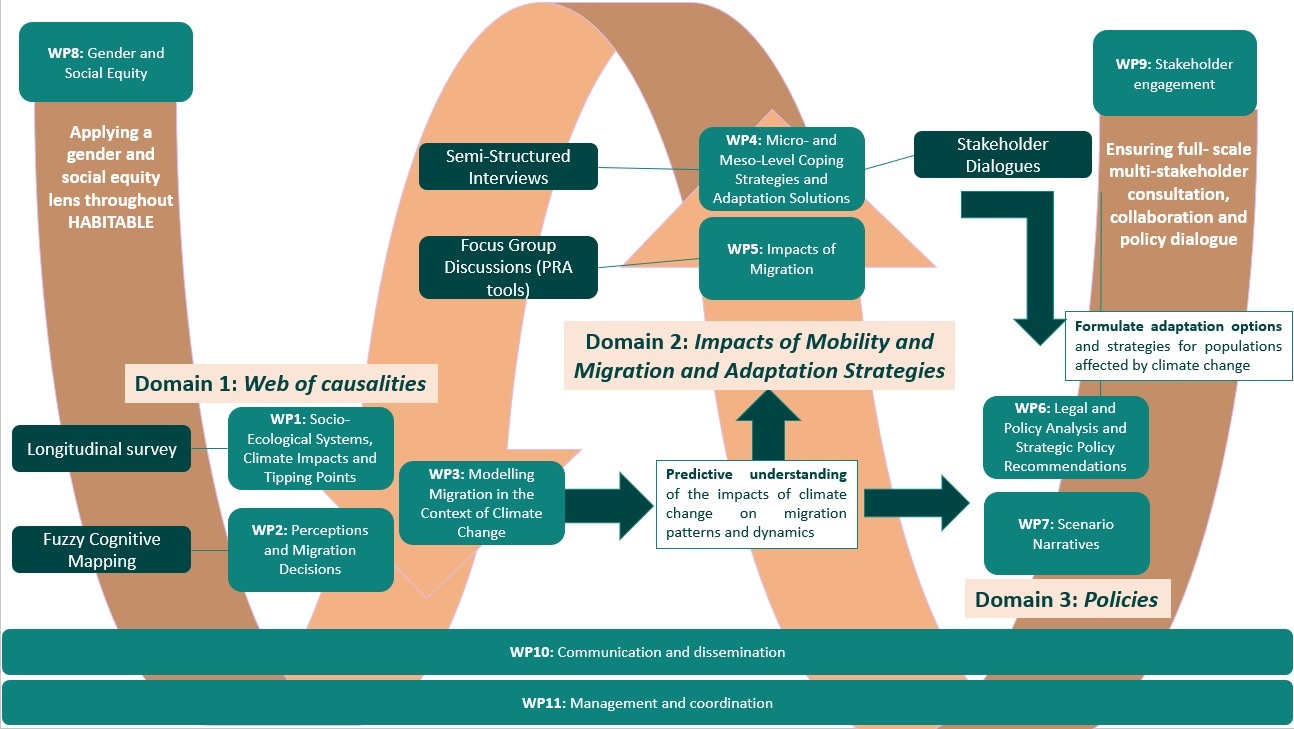HABITABLE is centered around the notion of habitability and aims to formulate a broader and interdisciplinary conceptualisation of the concept of social tipping points as an innovative way to analyse how environmental disruptions can potentially trigger major social changes.
HABITABLE contends that the “habitability” of a given place is hardly objective and cannot be determined by analyses of climate parameters alone. On the contrary, migration outcomes are strongly dependent on individual and collective perceptions of changes and risks, as well as other mitigating factors of these changes – such as the adaptive strategies and capacities of populations in situ. Building from this, an innovative contribution from HABITABLE is the consideration of the perceptions of affected populations – migrant and non-migrant – regarding the habitability of local areas and the perceived benefits of migration.
Intentionally steering away from simple linear assumptions, HABITABLE adopts a systems-based approach accounting for the interactions between climate impacts and other drivers of migration – including social, political, economic, environmental and demographic factors. HABITABLE’s systemic approach will contribute to the design of appropriate and sustainable policy responses to the climate-migration nexus.
HABITABLE is divided into three research domains: 1) Web of Casualties, 2) Adaptation, and 3) Policies, which are complemented by two transversal components: Gender and social equality, and Stakeholder engagement. Each domain consists of Work Packages led by different consortium members whose geographical, disciplinary and methodological strengths complement each other.

